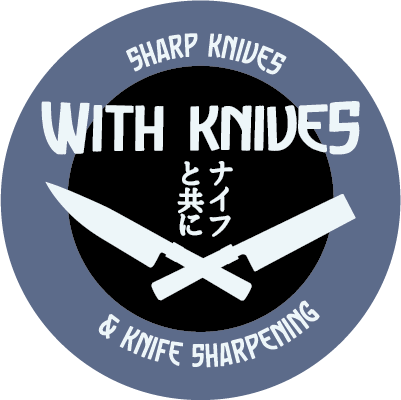First Cuts
Start with soft foods, until you are comfortable with your new knife, before moving onto harder foods. Do not use twisting or axe hacking motions. Don’t let your mate try and cut bones or frozen foods either, it is not a sword.
Chopping Boards
Wood is good ,soft wood is better than hard wood, plastic is good too. Glass, steel, bamboo or marble are not products that should be used as chopping boards.
Cleaning
Hand wash in hot, soapy water. Dry with a dry towel. NO DISHWASHERS, the chemicals eat the steel and destroy handles.
Storage
The box it came in is a good option, or on a wooden magnetic knife rack ,not a metal one. Plastic knife guards or wooden saya’s are good option if you need to put it in a drawer or transport it in your knife roll.
Sharpening
I generally suggest to freehand sharpen on Japanese water stones. Pull-through sharpeners, steel honing rods, sharpening systems and cheap diamond sharpeners will damage your Japanese knife. Sharpening stones and lessons are available, please contact for more info.
Carbon Steel Care
Patina
Surface layer of various colour formed through oxidation or chemical reactions. Its ok for your knife and will give some rust protection.Rust
Reddish flaky iron oxide formed by the chemical reaction between, iron, oxygen and water. It is bad for your knife, you should remove it.
Rust Removal Products
Stone Powder
Bar Keepers Friend
Cream Cleaner


